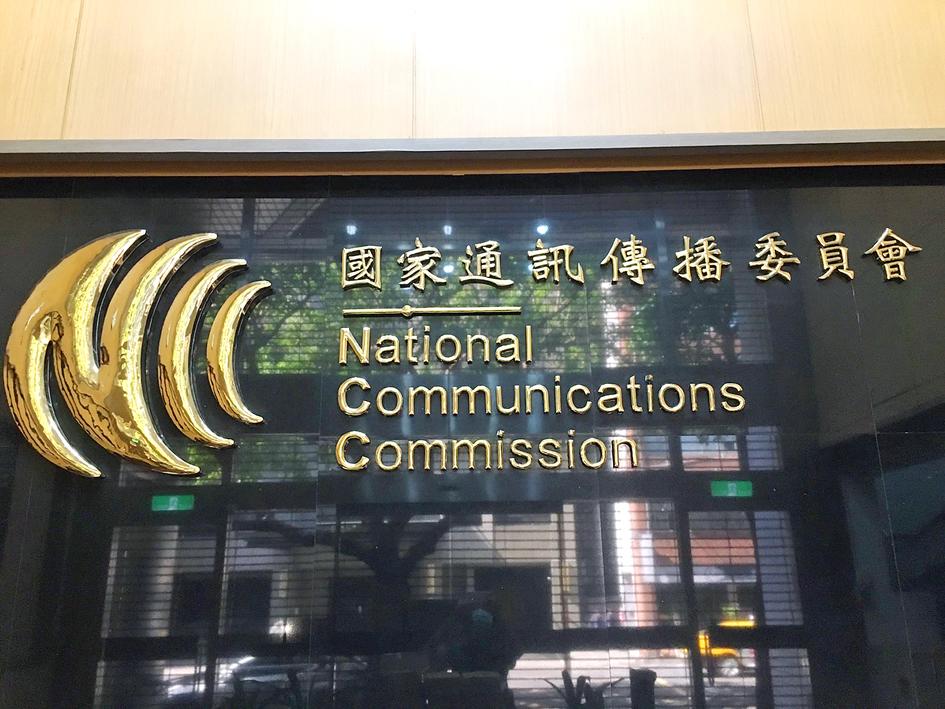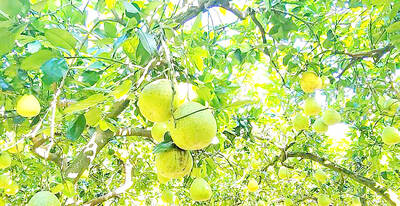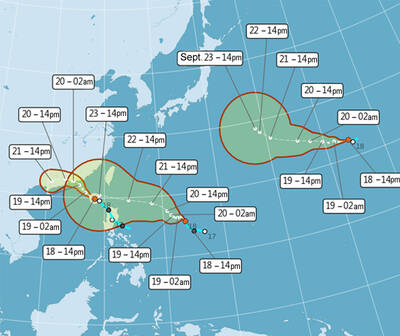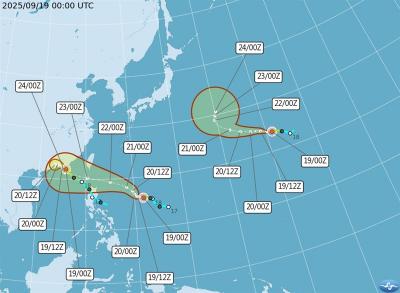The National Communications Commission (NCC) yesterday said it is inviting San Want Holdings Ltd chairman Tsai Eng-meng (蔡衍明), the largest shareholder of CTi News (中天新聞), to attend an administrative hearing on the news channel’s license renewal application on Monday next week.
NCC Commissioner Hsiao Chi-hung (蕭祈宏) is to preside over the hearing, alongside NCC commissioners Wang Wei-ching (王維菁) and Lin Li-yun (林麗雲), it said.
“We fully respect San Want’s right to have an attorney represent them at the hearing. However, as the hearing would tackle many practical issues concerning the management and operation of the news channel, we feel that Mr Tsai would be the best person to attend the hearing, as he would have the most profound and comprehensive understanding on the direction that the news channel is heading and other relevant information,” the commission said in a statement.

Photo: Yang Mien-chieh, Taipei Times
“As the media regulator, we would also like to use this opportunity to forge a dialogue with media outlets and talk about how we can better facilitate people’s participation in public affairs. As such, we sincerely invite Mr Tsai to attend the administrative hearing in person and make a dialogue between the government and media outlets possible,” it added.
CTi News is part of the Want Want China Times Media Group, which was formed after Tsai’s Want Want Holdings Ltd purchased the China Times Group in 2008. Its license is set to expire by the end of this year.
The commission last month announced that it would hold an administrative hearing to help it review its license renewal application, the first time that it would hold such a hearing.
The commission’s decision is widely believed to be related to the channel’s performance in the past four years, during which it has accumulated NT$10.73 million (US$370,870) in fines for contravening media regulations.
The commission’s extension of a personal invitation to Tsai took many by surprise, as it had never issued an official statement on inviting specific people to attend administrative hearings, but had normally left it to the discretion of the parties involved.
However, some see the commission’s announcement as a strategic move, after the Chinese-language China Times — another member of the Want Want China Times Media Group — on Wednesday last week began special coverage of CTi News’ license renewal application.
The newspaper yesterday dedicated a full page to stories critical of the NCC and its decision to hold a hearing.
The commission said that it is Tsai’s right, but not an obligation, to attend the hearing.
His absence at the hearing will neither affect the effectiveness of the hearing nor harm the interests of the parties involved, it said.
The NCC further defended its decision to hold a hearing by citing Article No. 10 of the National Communications Commission Organization Act (國家通訊傳播委員會組織法) and the Administrative Procedure Act (行政程序法), which authorizes the commission to convene public hearings to help it review administrative orders, plans and dispositions concerning public interests.
Parties involved in the case as well as relevant stakeholders would be asked to submit written statements before the hearing, the administration said, adding that it would also broadcast the entire hearing online on Monday.

NEW AGREEMENT: Malaysia approved imports last year after nearly two years of negotiations and inspections to meet quarantine requirements, officials said Up to 3.6 tonnes of pomeloes from Taiwan cleared Malaysian customs on Friday, in the first shipment of Taiwanese pomeloes to Malaysia. Taiwan-grown pomeloes are popular in domestic and overseas markets for their tender and juicy taste, the Ministry of Agriculture’s Animal and Plant Health Inspection Agency said. The fruit is already exported to Japan, Canada, Hong Kong, Singapore and the Philippines, it added. The agency began applying for access to the Malaysian market in 2023, compiling data on climate suitability, pests and diseases, and post-harvest handling, while also engaging in nearly two years of negotiations with Malaysian authorities and submitting supplementary

PEAK MONTHS: Data showed that on average 25 to 27 typhoons formed in the Pacific and South China seas annually, with about four forming per month in July and October One of three tropical depressions in the Pacific strengthened into a typhoon yesterday afternoon, while two others are expected to become typhoons by today, Central Weather Administration (CWA) forecaster Lee Ming-hsiang (李名翔) said yesterday. The outer circulation of Tropical Depression No. 20, now Typhoon Mitag, has brought light rain to Hualien, Taitung and areas in the south, Lee said, adding that as of 2pm yesterday, Mitag was moving west-northwest at 16kph, but is not expected to directly affect Taiwan. It was possible that Tropical Depression No. 21 would become a typhoon as soon as last night, he said. It was moving in a

Tigerair Taiwan and China Airlines (CAL) today announced that several international flights were canceled or rescheduled due to Typhoon Ragasa. The Central Weather Administration (CWA) has maintained sea and land warnings for the typhoon. Its storm circle reached the Hengchun Peninsula (恆春半島) on Taiwan's southern tip at 11am today. Tigerair Taiwan said it canceled Monday's IT551/IT552 Taoyuan-Da Nang, IT606/IT607 Taoyuan-Busan and IT602 Taoyuan-Seoul Incheon flights. Tomorrow, cancelations include IT603 Seoul Incheon-Taoyuan, as well as flights between Taoyuan and Sapporo, Osaka, Tokyo Narita, Okinawa, Fukuoka, Saga, Tokyo Haneda, Nagoya, Asahikawa and Jeju. On Wednesday, the IT321/IT322 Kaohsiung-Macau round-trip would also be canceled. CAL announced that today's

Three tropical depressions yesterday intensified into tropical storms, with one likely to affect Taiwan as a typhoon, the Central Weather Administration (CWA) said. The three storms, named Mitag, Ragasa and Neoguri, were designated as storms No. 17 to 19 for this year, the CWA said. Projected routes indicate that Ragasa is most likely to affect Taiwan, it said. As of 2am today, Ragasa was 1,370km east-southeast of Oluanpi (鵝鑾鼻) on the southernmost tip of Taiwan. It was moving west-northwest before turning northwest, slowing from 11kph to 6kph, the agency said. A sea warning for Ragasa is unlikely before Sunday afternoon, but its outer rim